
Alphabetical Menu
Chronological Menu
|
Atabai 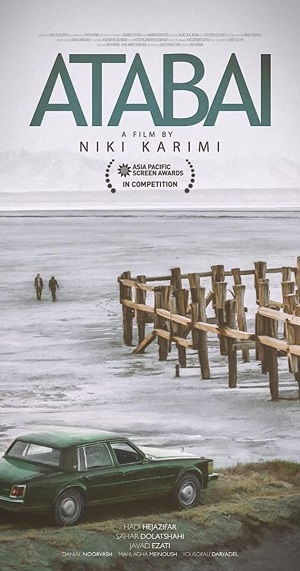 Kazem (Hadi Hejazifar), an middle-aged architect from Tehran, returns to his village hometown after learning that his sister committed suicide. She was stuck in an arranged marriage with an abusive husband who sold their orchard to a different family. Kazem holds a grudge against his domineering father, (Yoosefali Daryadel), and his best friend, Yahya (Ezati), becomes he blames them for his sister's suicide. Meanwhile, he meets Sima (Sahar Dolatshahi) and develops a romance with her. In Atabai, Kazem arrives at his hometown with a lot of pent-up anger, sorrow, regret and hatred. The screenplay by writer/director Niki Karimi and co-writer Hadi Hejazifar gradually shows how he confronts his traumatic past and learns how to process his emotions to get rid of his hatred toward his father, his best friend and even his sister's husband. There's a hint of Kazem's darker emotions in the first minute of the film, but the filmmakers don't reveal Kazem's tragic past right away. As he drives with his nephew, Aydan (Danial Noroush), toward the village, little does he know what's in store for him when he discovers that his sister's husband sold the orchard which was her dowry. Karimi and Hekazifar do a great job of incorporating just the right amount of exposition without resorting to flashbacks. They also avoid cheesiness and melodrama. Interestingly, the romance between Kazem and Sima is only a small, yet important subplot with a bittersweet climax. Kazem's sister and her husband aren't even shown; they remain in the audience's imagination as well as in Kazem's memories. Throughout the course of the film, Kazem deals with his emotional pains head-on while confronting his father and best friend. His emotional journey and epiphanies are genuinely moving and profound, so his character arc feels real. There's a small, but powerful scene when he tries to hold back his tears by saying that he won't cry. What's wrong with a man crying? Would that make him less of a man? He'll learn that bottling his emotions isn't healthy nor is it an easy task. He's a human being, after, all, so by expressing his emotions, facing them and challenging them, he embraces his own humanity. Another equally potent scene is a when Kazen has a heart-to-heart with his father who shows some signs of introspection and emotional pain of his own. Every character is a human being in Atabai, so kudos to the filmmakers for seeing and treating the characters that way. Even Kazem's love interest, Sima, and his best friend, Yahya, suffer from emotional pains of their own which make them all the more human and relatable. Atabai is very well-shot with some poetic imagery. The landscape in and around the village becomes a character in and of itself. Some of the shots are even haunting, i.e. during the scene when Kazem talks about superstition that when you dream about a dead person and pull their finger in the dream, they'll reveal secrets to you. Director Niki Karimi also includes some birds-eye views of the village which adds to the film's scope. She moves the film along at an appropriately slow, but not too slow, pace. The performances, especially by Hadi Hejazifar, are raw, natural and convincingly moving. At a running time of 1 hour and 45 minutes, Atabai is a genuinely heartfelt, wise and tender emotional journey.
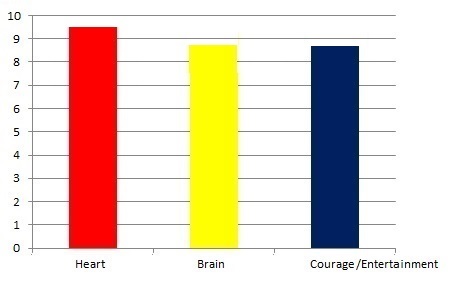 Benediction 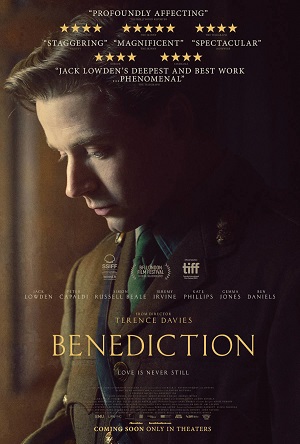 Upon returning from his service in World War I, Siegfried Sassoon (Jack Lowden), a poet, strongly opposes the war. He gets sent to a psychiatric hospital while struggling with his closeted homosexuality. Soon, falls in love with another poet, Owen Wilfred (Matthew Tennyson) before moving on to a new lovers, Ivor Novello (Jeremy Irvine), Stephen Tennant (Calam Lynch), and Glen Byam Shaw (Tom Blyth). He eventually marries Hester Gatty (Kate Phillips). Based on a true story, Benediction is a biopic that ends up much more the sum of its parts. The screenplay by writer/director Terence Davies does a great job of introducing Siegfried Sassoon to the audience. Davies tells his story using a non-linear structure that occasionally shows Siegfried as an older man (now played by Peter Capaldi) looking back on his past. He even has the younger and older versions of Siegfried together which makes the film both surreal, unconventional and poignant. Within the first 30 minutes, you learn about Siegfried's wartime experiences and how he subversively spoke out against the war afterward before getting committed to a psychiatric hospital. He comes across as someone who's a brave and honest critical thinker and a very talented, introspective poet. Although Benediction isn't a war film per se, in a way it is because Siegfried has innate battles that he struggles to overcome, including his repressed homosexuality. It's also a love story, but not just about his romances with the men in his life, but also with himself. Davies doesn't shy away from showing the darker, emotionally devastating and tragic elements of Siegfield's life, so by not sugar-coating anything, he treats the audience as mature adults. Most importantly, though, he shows Siegfried as a human being while allowing the audience to get a glimpse of his heart, mind and soul. The audience remains with Siegfried throughout the film and gets to know him, warts and all. His emotional pain feels palpable and anyone who has a beating heart will be able to feel how much he pines for Ivor and, above all, how much he yearns to be his true self, a human being, in a world that's very dehumanizing. Jack Lowden gives a nuanced and heartfelt performance as Siegfried Sassoon. He breathes life into the role and handles its emotional complexities with conviction. It takes emotional maturity to be able to sink one's teeth into such a complex role. Terence Davies makes Benediction feel very cinematic with the stylish cinematography, editing, lighting and some visual poetry whenever the older version of Siegfried shows up next to the younger version. Everything from the costume design to the set design are top-notch. The music score also enriches the film without being distracting or intrusive. Benediction remains moving without being sappy. It covers many years in Siegried's life, yet it doesn't feel overstuffed or undercooked. That's a testament to the strengths of Terence Davies as a writer and director, and for the talented cast for giving emotionally engrossing performances. At a running time of 2 hours and 12 minutes, which actually feels shorter, Benediction is captivating, poignant and profoundly human.
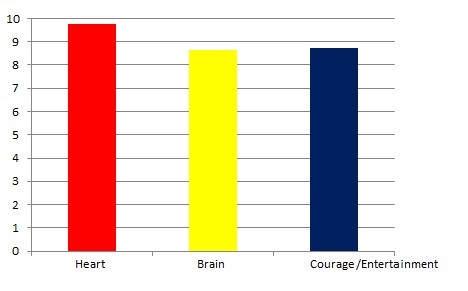 Crimes of the Future 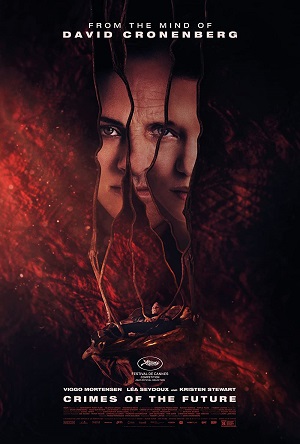
Saul Tenser (Viggo Mortensen), a performance artist, grows organs with the help of his assistant, Caprice (Léa Seydoux), who removes his new organs in front of an audience. Wippet (Don McKellar) and Timlin (Kristen Stewart), investigators from the National Organ Registry, want to record Saul's new organs in their registry. Meanwhile, Detective Cope (Welket Bungué) tries to hunt down Saul, Caprice and Lang (Scott Speedman), a cult leader. Crimes of the Future blends sci-fi and horror with social commentary, but it fails to pack an emotional or intellectual punch. The premise sounds like it could be suspenseful, wildly imaginative and terrifying. However, the execution of that premise comes up short. The screenplay by writer/director David Cronenberg doesn't take its concept anywhere really interesting or surprising. Once the initial shock of what kind of performance art Saul and Caprice practice, the shock wanes as you see more and more of their surgery performances. Cronenberg doesn't give any of the characters enough of a backstory, so he essentially dehumanizes them. There are no flashbacks, which is fine, but what about some more information about Saul as a human being? Or Caprice? If the plot were more intriguing, that would've at least allowed the audience to be entertained and at the edge of their seat. There's no edge-of-your seat suspense here nor is there any slow-burning suspense either. Around the time that Saul and Caprice meet Wippet and Timlin, lethargy starts to seep in. Also, the tone shifts occasionally into dark comedy, but the attempts at humor fall flat, so the beats don't land. The only modicum of suspense is the anticipation, hopefully, of a bold twist or something that takes its level of bonkers up a few notches. It's not nearly bold or bonkers enough to be a guilty pleasure. If only Cronenberg were to take more risks. Sometimes, risks can be rewarding and pay off. Moreover, it doesn't help that there's not a single character to connect to on an emotional level. If the audience can't connect with anyone or care about them, how can they root for anyone? None of the characters come to life, so even when the film tries to be moving, it doesn't succeed. On a visceral level, Crimes of the Future mostly excels with creepy lighting, set designs and very realistic-looking gore. If that's all you care about, the film won't disappoint. It definitely has plenty of icky, grotesque images. You definitely don't want to watch all of that while eating. Grossing an audience out isn't enough, though, to allow for the film to transcend. This is the kind of film that is ultimately less than the sum of its parts. It has many ideas, but doesn't explore them profoundly enough. Stylish visuals and atmosphere can only go so far. The performances are decent, but they're undermined by the vapid screenplay that doesn't want to explore any of the characters enough to provide a window into their heart, mind and soul. All of the actors and actresses are capable of giving great performances, though, so it's a shame that they're unable to rise above the dull screenplay. At a running time of 1 hour and 47 minutes, Crimes of the Future is visually stylish and creepy, but shallow, lethargic and underwhelming.
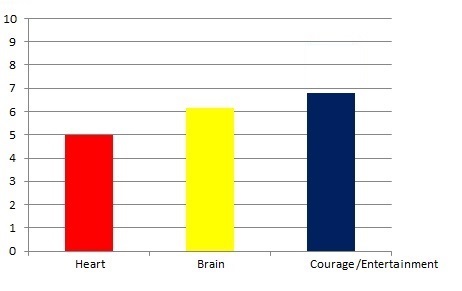 Eiffel 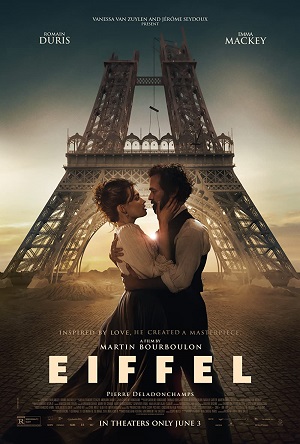 In 1880s France, Gustave Eiffel (Romain Duris), an engineer, plans to build the Eiffel Tower, but runs into obstacles along the way. At a dinner, he meets Adrienne (Emma Mackey), his former lover, who's now married to Antoine de Restac (Pierre Deladonchamps), a journalist who's also his friend. Adrienne's wealthy father financed a bridge that Gustave built decades earlier. Gustave and Adrienne rekindle their flame hoping that Antoine won't know about their secret affair. Loosely based on the true story, Eiffel is not an official biopic of Gustave Eiffel, but that's unrelated to its major, systemic problem. Despite a screenplay with six writers, namely, Caroline Bongrand, Thomas Bidegain, writer/director Martin Bourboulon, Natalie Carter, and Martin Brossollet, the audience barely gets to know Gustave enough to humanize him. He begins the film as a stranger and pretty much stays that way until the end credits roll. The non-linear structure works fine, though, and there's nothing confusing. The tone remains, more or less, serious, so there's no unevenness when it comes to that. Unfortunately, the romance between Gustave and Adrienne ranges from falling flat to cheesiness. That would've been forgivable if there were more of a window into the heart, mind and soul of Gustave or Adrienne for that matter. Then there's a poorly developed subplot with Gustave's daughter, Claire (Armande Boulanger) who's about to get married. A truly great biopic shows the audience what the subject is like behind the curtain, so-to-speak. Simply put, the audience doesn't get enough of that in Eiffel. His struggles to build the Eiffel Tower are mildly engaging, and it doesn't help that everyone already knows that he'll succeed in building it, so there's no suspense there. What's left is a rather sappy and lethargic love story that fails to pull your heartstrings. Romain Duris gives a decent performance, but doesn't really have much opportunities to shine with the screenplay that barely scratches Gustave Eiffel's surface. Emma Mackey is radiant, though. It's disappointing that she and Romain Duris lack chemistry. Perhaps that's the fault of the screenplay, again, that fails to bring either of the characters to life. The cinematography is fine, albeit nothing exceptional. Interestingly, Eiffel feels longer than another biopic opening this week, Benediction, even though Benediction clocks 2 hours and 12 minutes while Eiffel clocks 1 hour and 49 minutes. It's ultimately contrived, anemic and cheesy with not enough of a glimpse inside the heart, mind and soul of Gustave Eiffel. Aline is a much better example of a loose biopic that's actually heartfelt, wise and entertaining. 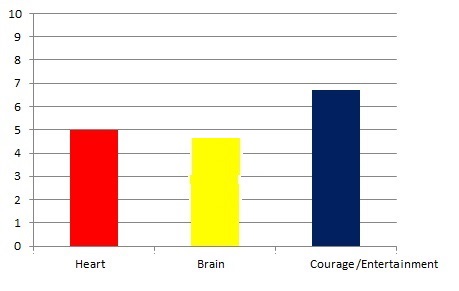 Fortune Favors Lady Nikuko  Kikuko (voice of Cocomi), a middle school girl, lives on a riverboat with her larger-than-life mother, Nikuko (Shinobu Otake), a server at a local restaurant. A secret from her mother's past changes the course of their relationship. Fortune Favors Lady Nikuko is a mildly entertaining mother-daughter story. Based on the novel by Kanako Nish, the screenplay by Satomi Ohshima spends a lot of time with exposition and backstory as Kikuko learns about her mother's past love life and occupations before she ended up working at the restaurant. Kikuko seems like a precocious young girl, much more quiet and reserved than her loud, off-the-wall, goofy mother. They're opposites in many ways, and Kikuko feels embarrassed by her at times. They bond during dinnertime, but Nikuko seems to lack boundaries as she talks about very private things with her daughter. It's not exactly a healthy relationship, and it gets even more complicated when Kikuko learns something about her past that's shocking. That "something", which won't be revealed here, is quite a big revelation. It arrives very late during the film while introducing a new character, so the third act feels contrived and rushed. Until that point, Fortune Favors Lady Nikuko meanders with very little narrative momentum, but at least the relationship between Kikuko and her mother remains somewhat engaging. The same can be said about Kukiko's social life in middle school with her friend, Maria (voice of Izumi Ishii). The film doesn't explore their friendship profoundly enough, although it does delve into Kikuko's wild imagination about what she thinks of her mother. The tone is a bit all over the place, unfortunately, with some offbeat, humor with a light touch before the film gets more serious and sappy during the last 10 minutes. The 2D animation looks fine, colorful and lively, but it's not as breathtaking as Miyazaki's classic anime. Perhaps the highlight of the film and the real star is all of the food shown throughout, so this isn't the kind of film that you should watch while you're hungry. You'll learn a little bit about Japanese cuisine, i.e. the Japanese version of spaghetti with meat sauce. There are also pacing issues because the first hour feels slow while the last half hour picks up the pace a little while rushing through a lot of new information that bites off more than it could chew. There's an interesting use of symbolism in the film, though, that makes the last scene poetic and a little sweet. At a running time of 1 hour and 37 minutes, Fortune Favors Lady Nikuko is mildly entertaining, but tonally uneven and meandering with a maudlin third act.
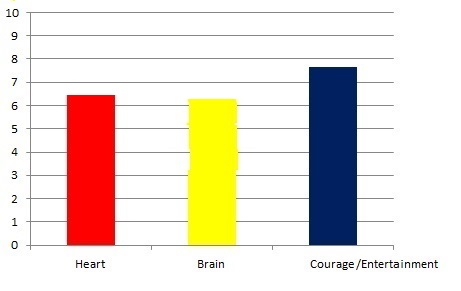 Maika: The Girl From Another Galaxy 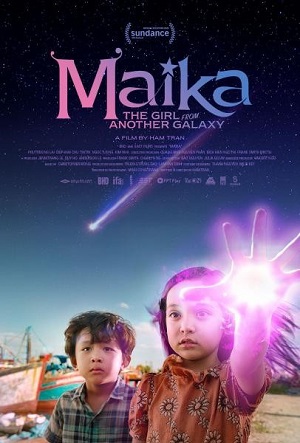
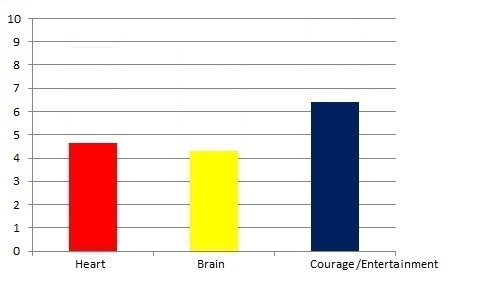 Miracle  Cristina (Ioana Bugarin), a nun, escapes a convent suffering from an ailment that she doesn't disclose. She takes a taxi to the hospital, but on her way back from the hospital, she takes a ride with a different cab driver, Batin (Cezar Antal). When she's reported missing, detective Marius Preda (Emanuel Pârvu) arrives at the convent to investigate where she went and what happened to her. Miracle has many twists and turns, so the less that you know about its plot, the better. The plot synopsis above intentionally leaves out the surprises. Writer/director Bogdan George Apetri does a great job of playing around the audience's expectations as he begins the film as one genre and switches to another in the second half. If you think that Miracle is about a nun who's unhappy at her convent and yearns to be free, you're partially correct. Apetri trusts the audience's intelligence as well as their patience and imagination which is evident in a key scene that would've been graphic if it were shown to the audience unflinchingly. You hear the sounds during that scene, but you can't see precisely what's happening. That makes the scene actually far more horrifying because your imagination is quite powerful. The second half of Miracle builds the suspense in a Hitchcockian style except that you already know the identity of the villain. Detective Marius Preda re-traces Cristina's steps which reveals a little bit more information about what you observed in the first half with Cristina. It also confirms what you might've suspected was the reason why she went to the hospital in the first place. As gripping as the second half feels, it's also surprisingly moving because Apetri humanizes the detective. Marius comes across as a tough, smart, yet emotionally vulnerable human being. There's one scene toward the end, which won't be spoiled here, where he makes a morally ambiguous decision that says a lot about how he's feeling and what he's thinking. Sometimes a film that veers toward a completely new direction takes a nosedive; that can't be said about this film, though, because it actually becomes increasingly complex and intriguing. Miracle does go toward dark territory, but it doesn't forget to remain grounded in realism which makes it all the more engrossing. The performances are all natural and convincingly moving, particularly the performance of Ioana Bugarin and Emanuel Pârvu. Bugarin also impresses during the film's quieter moments during the first half. Writer/director Bogdan George Apetri keeps the pace moving slow, but not sluggishly, while trusting the audience's patience. Patience, after all, can be very rewarding. Even the question of "Why is the film called Miracle?" will be answered eventually if you're willing to wait. There are some hauntingly poetic visuals that speak louder than words, i.e. the final shot. At a running time of just under 2 hours, Miracle is spellbinding, suspenseful and engrossing.
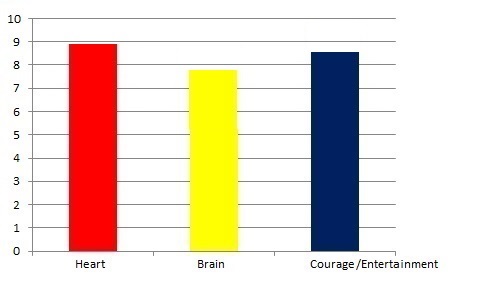 Neptune Frost 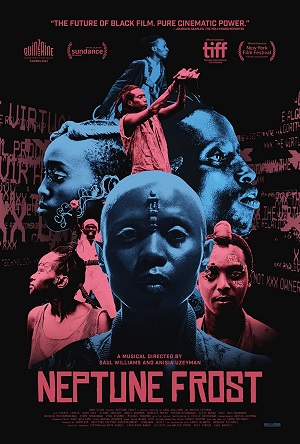 In a futuristic society, Neptune (Elvis Ngabo and Cheryl Isheja), an intersex hacker, falls in love with an escaped coltan miner, Matalusa (Bertrand Ninteretse), despite not meeting physically. Their love somehow threatens "The Authority" that Neptune rebels. With the help of Matalusa, they ignite an uprising against "The Authority." Neptune Frost is one of the most inspired sci-fi movies in quite a while, even surpassing Crimes of the Future in terms of how it takes its concept to thrilling and unexpected territory. The screenplay by writer/co-director Saul Williams blends sci-fi, social commentary, romance, technology, action and musical in a way that sounds like it could've turned out to be a campy, anarchic mess. There's a slight sense of anarchy because the film genre-bends, but no there's no sign of campiness or unevenness. To describe the plot of Neptune Frost wouldn't do it any justice because it's far more than the sum of its parts and has to be experienced. Admittedly, it takes a while to get used to the film's blend of so many genres and to its vibe, but around the 10-minute mark, it suddenly clicks and becomes an exhilarating experience. Williams uses plenty of metaphors without over-explaining them to the audience, so he and co-director Anisia Uzeyman trust the audience's intelligence while leaving enough room for interpretation. They keep exposition to a minimum, yet you still learn a lot about the futuristic society. Even though it takes place in the future, in some ways, it's similar to our modern world. These people are human beings who are standing up for their beliefs and yearn to be free. Their romance isn't a conventional one because they're so far apart. It doesn't make much sense at first and it's not a very emotionally engrossing romance for that matter. However, to be fair, Neptune Frost isn't really a love story. It's hard to categorize which makes it all the more unique and extraordinary. Pay close attention to the lyrics of the songs during the musical numbers because they're quite profound. On an aesthetic level, Neptune Frost is a triumph. The set design, lighting, camerawork, costume design and make-up design combine to create a dazzling spectacle that provides plenty of eye-candy. The musical numbers (with just singing, no dancing) add to the spectacle as well as to the film's substance. Fortunately, the visual style doesn't overpower its substance, so it has both style and substance equally, unlike Crimes of the Future which mostly has style and shock value. The performances are terrific and feel natural which helps to keep the film grounded. At a running time of 1 hour and 45 minutes, Neptune Frost is exhilarating, bold and provocative.
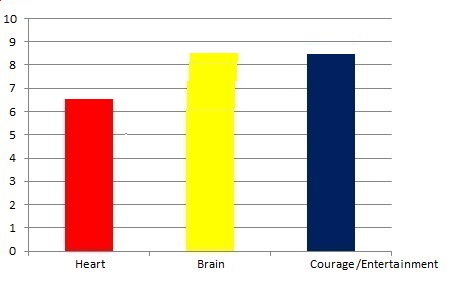 The Phantom of the Open 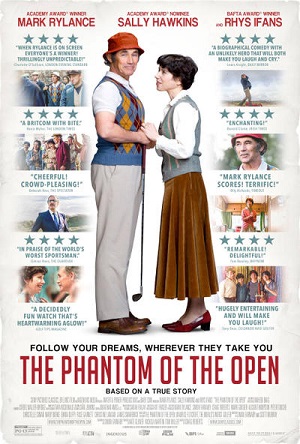 Maurice Flitcroft (Mark Rylance) lives with his wife, Jean (Sally Hawkins), stepson, Michael (Jake Davies), and twin sons, Gene (Christian Lees) and James (Jonah Lees). Bored of working as a shipyard crane operator, he seeks new excitement in his life, so he enters in the 1976 British Open Golf Championship despite no previous experience playing golf. Rhys Ifans plays Keith Mackenzie, an official of the Royal & Ancient, the golf organization overseeing the championship who's not very happy when Maurice gains fame as the world's worst golfer. The Phantom of the Open is delightful and amusing underdog story. Maurice may seem crazy, but there's a fine line between brilliance and madness. He's also goofy, humble, soft-spoken, a loving husband and father, and, above all, he's larger than life. He always remains likable despite his flaws, i.e. when he cheats on the application when he enters to play in the championship. Despite being terrible at golf and losing a lot of golf games, he refuses to quit. His persistence and determination to keep going despite his incompetence is amusing and part of what makes The Phantom of the Open seem like a fairy tale or a farce. The fact that it's based on a true story shows that truth is often stranger than fiction. Screenwriter Simon Farnaby keeps the film's tone light for the most part without getting too deep into the mind of Maurice or dwelling too much on his struggles. Maurice comes from a working class background that's usually found in Ken Loach films, i.e. I, Daniel Blake. If you can imagine a Ken Loach film that's less of an unflinching slice-of-life and more upbeat and funny, you'll get a sense of what Phantom of the Open is like. Maurice, of course, is very different from Daniel Blake in terms of their personality and how they show their courage, but they're pretty much cut from the same cloth. Fortunately, there are just enough scenes with Maurice and his wife and children to ground the film in some realism and to humanize him. This isn't the kind of film that's very moving; it's more endearing than poignant. Maurice is such a charming and bizarre character that you can't help but root for him. Sure, the ending can be seen from a mile away, but that's okay because the journey to that ending is what truly matters. There's nothing inherently wrong with predictability. Also, it's worth mentioning that the film does indeed earn its uplift. A huge part of what makes The Phantom of the Open succeed when it comes to balancing its comedic and serious tones comes from the perfect casting. Mark Rylance gives a somewhat tongue-and-cheek and goofy performance that's very amusing to watch. With a less talented actor, Maurice could've been as annoying nails on a chalkboard or over-the-top. Rylance knows just how and when to reel his performance in so that he's not too goofy or too much like a caricature. He's playing a real-life person, after all, so it's a testament to his strengths as an actor that he breathes life into the role. He also exudes plenty of warmth and charisma on-screen, just like he always does. Sally Hawkins is also terrific as Maurice's wife, as is Rhys Ifans as Keith Mackenzie. The film moves along at just the right brisk pace, and there's some great use of music, i.e. ABBA's "Money, Money, Money", which also helps to set the light tone while invigorating the film. At a running time of 1 hour and 46 minutes, The Phantom of the Open is a funny, uplifting and crowd-pleasing delight.
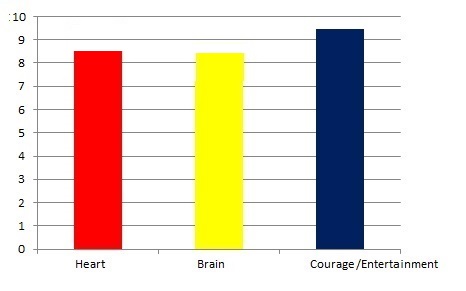 Watcher  Julia (Maika Monroe) moves into a new apartment in Romania with her Romanian husband, Francis (Karl Glusman). She soon notices that a stranger, Samuel Veber (Burn Gorman), is watching her from the building across from hers. She also believes that he's stalking her. Meanwhile, she learns that a serial killer named The Spider has been on the loose. Watcher could've been a taut Hitchcockian thriller, but instead becomes a dull 90's thriller along the lines of Sliver and The Hand That Rocks the Cradle. Pretty much everything that happens in the screenplay by co-writer Zack Ford and writer/director Chloe Okuno can be telegraphed from a mile away. Julia moves into a fancy apartment with no shades on her windows. Could Julia not have gotten window shades or curtains? Her husband spends most of the time at work and leaves her home alone. Of course, like the husband in Rosemary's Baby he doesn't believe his wife's suspicions about her creepy stalker right away. He thinks that she's delusional. The filmmakers aren't really interested in exploring their marriage which seems to have issues from the get-go. It's more concerned about reaching its inevitable conclusion which turns out to be a conventional, safe cop-out with no surprises nor does it take any risks a la Arlington Road. Had it gone darker and more bitter, perhaps it would've been more than just a run-of-the-mill, forgettable thriller. Also, the audience learns who the villain is too early, so much of the suspense dissipates after that point. He's a boring, cookie-cutter villain with not enough of a backstory to humanize him. Did he suffer an abusive childhood? Probably, but that remains unexplored. Even the villain in Don't Breathe is far more compelling. In terms of production values, Watcher remains impressive. The lighting, camera angles and set design add a creepy atmosphere. Also, the sound design is worth mentioning, i.e the noises that Julia hears from her neighbors because of the thin walls. Those production values create some psychological horror, but not enough to make the film truly horrifying on a visceral level. Maika Monroe's convincingly moving performance helps to anchor the film and bring a little bit of much-needed emotional depth. The film's modicum of poignancy comes from her performance, not from the shallow screenplay. At a running time of 1 hour and 35 minutes, Watcher is an atmospheric, but pedestrian thriller low on surprises, scares and intrigue.
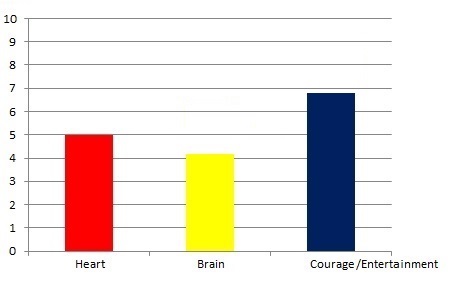 |